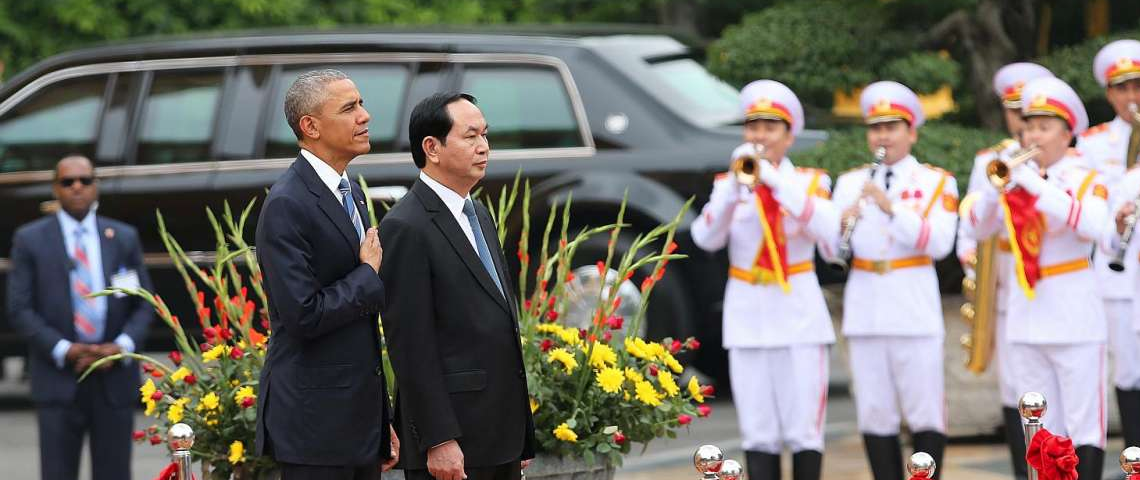
by Admin | May 23, 2016 | Initiative
(May 23rd, 2016) Thomas E. Patterson, of The Boston Global Forum and Harvard’s Kennedy School, in an interview with Lan Anh, a journalist with VietNamNet, discusses current and future U.S.-Vietnamese relations. He explains the roles of closer trade relations, Chinese militaristic expansionism in the South China Sea and Americans’ admiration for U.S. citizens of Vietnamese ethnicity in bringing Vietnam and America together. Here some of his thoughts
The lifting of the arms embargo is a further step in the strengthening of relations between Vietnam and the United States. It enhances the security of both nations, while adding to the growing ties between them. In the last year alone, trade between Vietnam and the United States has increased greatly and, if the Trans Pacific Partnership is adopted, the two countries will become major trading partners.
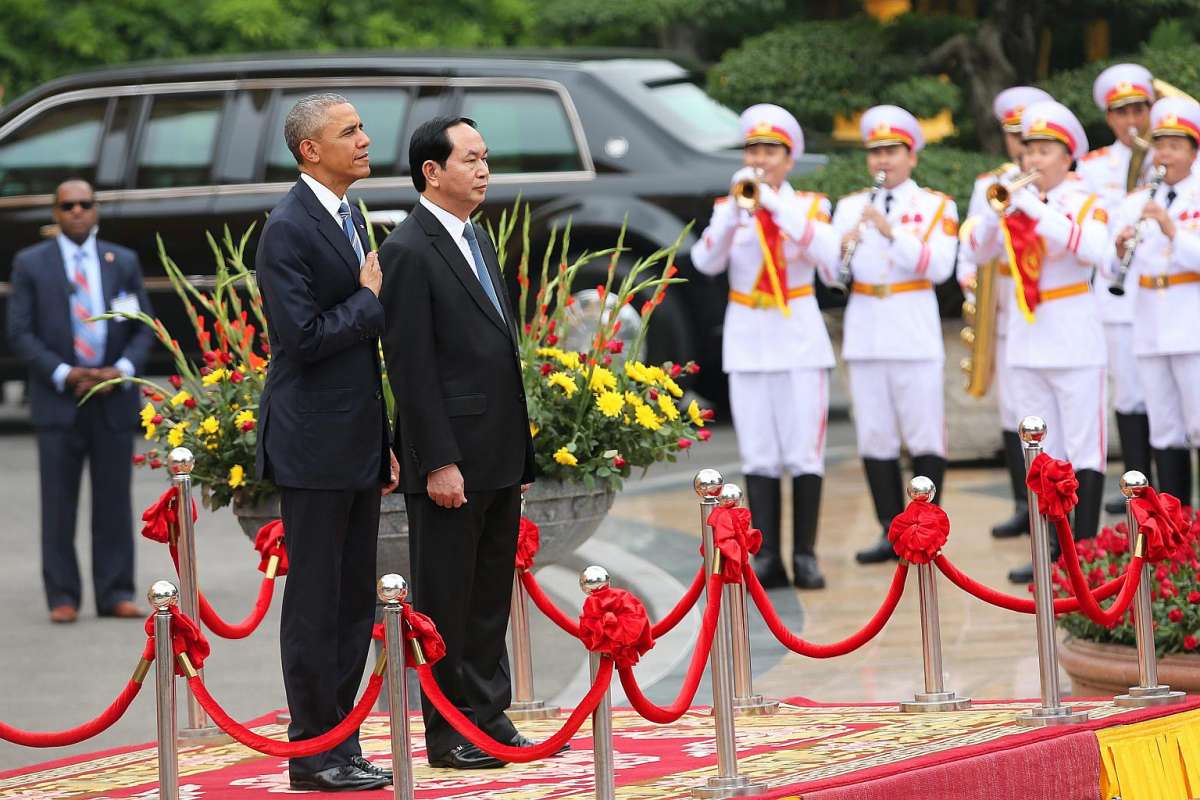
As Vietnam develops, and grows in strength in every way, there’s a possibility of a strategic partnership between the two countries similar to those that now exist between the United States and Japan and the United States and South Korea. However, America’s strategic partnerships are largely limited to countries that share a commitment to human rights and free and fair elections. Political reform in Vietnam would likely have to precede a strategic partnership. That’s a matter for the government and people of Vietnam to decide as their country’s development progresses.
America’s support for human rights is a lesson it learned the hard way when it backed a number of authoritarian regimes during the Cold War with the Soviet Union. Such regimes at some point lose the support of their people, which creates instability and blunts their progress. As well, nations that respect human rights rarely engage in armed conflict with each other. Through a commitment to human rights, they have discovered peaceful ways to resolve their differences to their mutual benefit. Beyond the issue of human rights, U.S. policymakers are interested in productive trade relations, which by definition benefit all the countries involved. Obstacles to free and fair trade could disrupt the further development of U.S.-Vietnam relations, though there is nothing at the moment that would suggest such obstacles exist between the United States and Vietnam. Unless that changes, I foresee a long period of productive trade relations. China’s increasingly aggressive actions in the South China Sea are also bringing the two countries closer together. For Vietnam, China’s actions are a direct threat to its sovereignty and endanger its rightful access to ocean resources. For the United States, China’s actions are a threat to the law of the sea. Nations have worked diligently to develop laws and norms governing the seas, and China’s actions ignore the mutual benefits that result from unimpeded transportation routes and respect for rightful claims to ocean resources. A further connection between the United States and Vietnam is the large and increasingly prosperous Vietnamese American community, which numbers more than a million people. They have enriched American society in many fields, everything from education to music to business. They are a role model that has inspired other Americans to admire and respect Vietnam and its people. In sum, the things that divide the United States and Vietnam are easily outnumbered by the things that unite them. That’s the promise of the future, a future that was unimaginable at the end of the tragic and destructive war that once divided our two countries.
by Admin | May 23, 2016 | Initiative
(May 23rd, 2016) The Obama administration announced Monday that the United States would fully lift the U.S. embargo on arms sales to Vietnam. Mr. Obama did not say this openly, but everyone knows that the decision mostly reflects growing concerns about China’s military clout and particularly its militaristic expansionism in the South China Sea. More generally the dramatic news shows the warming bilateral ties between the former enemy nations in a wide range of sectors, including economic and cultural.

President Obama disclosed the new arrangement at a news conference with Vietnamese President Tran Dai Quang during the opening day of his first visit to the country. The Washington Post reported that “Mr. Obama emphasized that his decision reflected a maturing relationship and deepening cooperation on security and economic investment {more than} four decades after the end of the Vietnam War.’’
Two years ago, the administration eased portions of the arms embargo that had been in place since 1975. The aim was to help bolster Vietnam’s maritime security in the South China Sea, where China’s move to exert more naval control of crucial shipping corridors has angered Vietnam, the Philippines and other nations that have claimed sovereignty. It has also upset the United States, Japan, India and many other nations, especially given that 30 percent of world trade goes through the South China Sea.
Obama said the latest step “was not based on China or any other considerations. It was based on our desire to complete what has been a lengthy process of moving towards normalization with Vietnam.” That was a careful diplomatic remark. Again, the move is clearly aimed at discouraging China from further adventurism in the South China Sea, which has involved, among other things, building military installations on disputed reefs and islands.
See more
by Admin | May 22, 2016 | Event Updates
(May 23rd, 2016) As part of their preparation for the Group of Seven (G7) Summit in Japan on May 26-27, G7 environmental officials have agreed to draft long-term strategies to reduce greenhouse-gas emissions “as soon as possible” in order to lead global efforts to address manmade climate change.
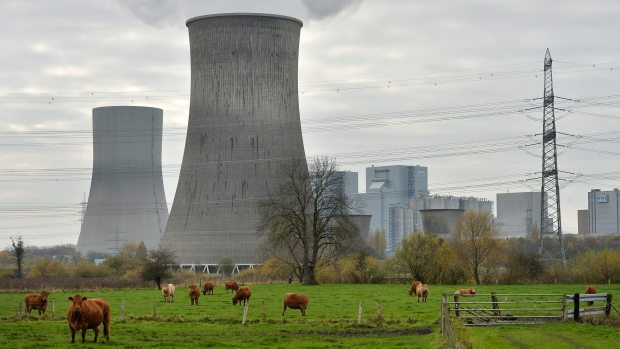
The ministers held a two-day meeting in Toyama to discuss following up on the Paris Agreement, a pact to fight global warming brokered between 195 nations in December. Countries agreed then to create “long-term low greenhouse-gas emission development strategies” by 2020.
“We commit to develop and communicate our strategies to the UNFCCC Secretariat, as soon as possible and well within the schedule provided by the COP21 decision,” the ministers said. The UNFCCC refers to the United Nations Framework Convention on Climate Change.
“Taking the lead in communicating these strategies will send strong signals to the private sector and other countries for the necessary transition toward a low-carbon society,” the ministers said.
See more
by Admin | May 22, 2016 | World Leaders in AIWS Award Updates
(May 23rd, 2016) U.S. President Obama is considering broadly expanding weapons sales to Vietnam to strengthen ties with Hanoi and boost regional defenses against China’s growing clout – and especially its seizure and militarization of some islands and reefs in the South China Sea, through which 30 percent of world trade in physician things is shipped.
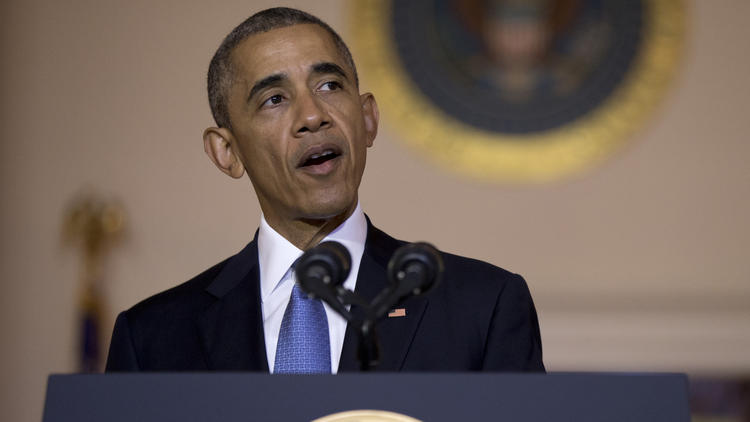
The Los Angeles Times says he “is leaning toward a partial lift – but has not ruled out a full suspension – of the ban on arms sales begun during the U.S. war in Vietnam and eased slightly in 2014.’’
Meanwhile, the Vietnamese government is considering a U.S. request to grant the U.S. Navy greater access to Cam Ranh Bay, a major supply point for the U.S. military during the American war in Vietnam, and “a port with direct access to the increasingly contested islands in the South China Sea.’’
by Admin | May 22, 2016 | World Leaders in AIWS Award Updates
(May 23rd, 2016) The Russian news service Sputnik News, which acts as a conduit for government pronouncements, says that Japanese Prime Minister Shinzo Abe and Russian President Vladimir Putin have been laying the groundwork for further economic and other cooperation, noting the importance of the second Eastern Economic Forum, to be held next Sept. 2-3 in Vladivostok. Messrs. Abe and Putin are expected to attend it
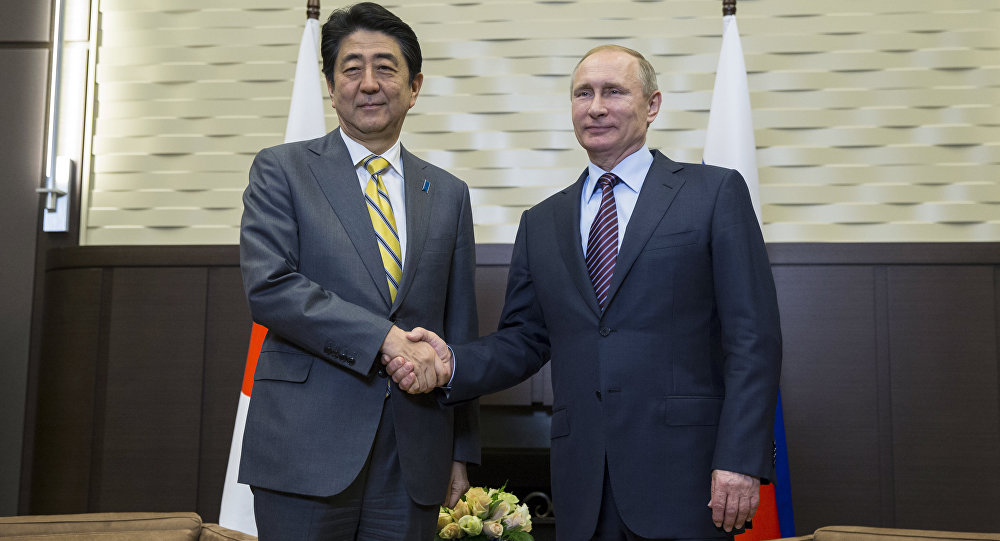
Earlier this month, the two leaders held rare talks in Sochi, Russia, where they discussed a wide range of political, economic and international issues.
According to Putin aide Yuri Ushakov, the Russian president is expected to visit Japan by the end of 2016.
Mr. Abe will host the G7 Summit May 26-27 in Japan, where his discussions with Mr. Putin will certainly come up.
See more
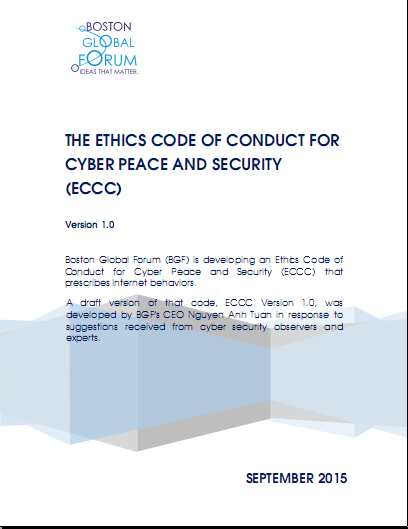
by Admin | May 22, 2016 | AI World Society Summit
(May 23rd, 2016) Last year as part of its effort to promote cybersecurity, the Boston Global Forum issued an Ethics Code of Conduct for Cybersecurity. This year, we are concentrating on ideas/suggestions on how to put the Code of Conduct into practice. We’re inviting leading policymakers, scholars, and technology experts to write short pieces (400-600 words) with their recommendations.
We will post the pieces on our website (bostonglobalforum.org) and distribute them to our international network. We would be honored if you would agree to contribute a piece as part of that effort.
Here are two request-letters from VNR and iNhaTrang to call for putting code of conduct by BGF into practice
Letter from VNR
Letter from iNhaTrang


by Admin | May 22, 2016 | AI World Society Summit
A survey by Evans Data finds that software developers in the region encompassing Europe, the Middle East and Africa are very worried about cybersecurity, with the largest plurality citing cyberterrorism as the cyberthreat they most fear.

The company says that “more software developers in the region (38.4 percent) feel that cyberterrorism is the threat they are most concerned with, followed by cybertheft (29.8 percent) and cyberespionage (21.4 percent).’’
“Cyberespionage, while in some ways related to both cybertheft and cyber terrorism, is distinguished from the two in that it involves theft of sensitive, classified, or proprietary information, rather than theft of money or deliberate sabotage,’’ the company said.
“Security is especially worrisome for developers in Europe,” said Janel Garvin, CEO of Evans Data. “They are most concerned with the very real threat of terrorism, and the failure of many organizations to implement a formal security strategy just adds to the anxiety. Only 30 percent of these developers say their company has a formal security policy in place that is adhered to across departments, and that’s very concerning when you think about the other 70 percent.”
See more
by Admin | May 22, 2016 | Global Alliance for Digital Governance, World Leaders in AIWS Award Updates
(May 23rd, 2016) In preparation for the G7 Summit May 26-27, G7 education ministers meeting in Japan have agreed to collaborate to improve education, including addressing the education deficits of refugee children and widening income inequality (with some of the latter linked to education deficits among low- and even middle-income people).
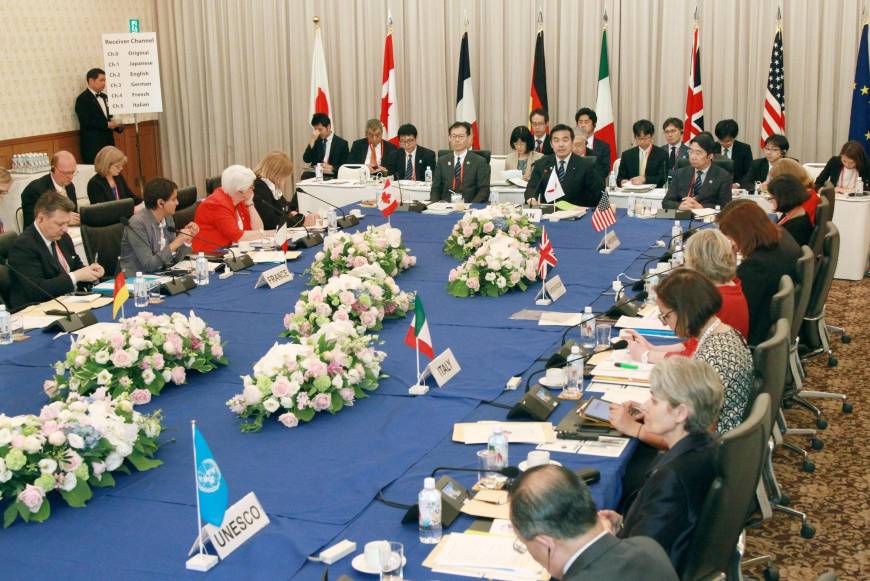
The representatives of Britain, Canada, France, Germany, Italy, Japan, the United States and the European Union agreed to try to offer quality education to children of refugees and immigrants at a time when European countries have a huge influx of immigrants displaced by wars and poverty in the Mideast and Africa.
The Japan Times reported: “The declaration also said that the countries will join hands in training teachers capable of guiding children with distinct cultural, religious and language backgrounds to accommodate the recent global surge in refugees and immigrants.’’
“In addition, the statement emphasized the importance of conveying core values such as democracy and the rule of law to the young to prevent them from joining radical extremist groups.’’
This dovetails with UNESCO’s program in Global Learning and Global Citizenship Education, with which The Boston Global Forum has been working closely.
The Japan Times als0 reported that the ministers also agreed to try to ensure equal opportunities for young people and women living in poverty, whether or not they are immigrants, in addition to boosting efforts to promote science and math education.
See more
by Admin | May 15, 2016 | World Leaders in AIWS Award Updates
(May 16th, 2016) The Russian government-linked news service Sputnik News reported that Japanese Prime Minister Shinzo Abe has expressed his confidence in what the service called a ‘’breakthrough’’ in relations with Vladimir Putin’s government.
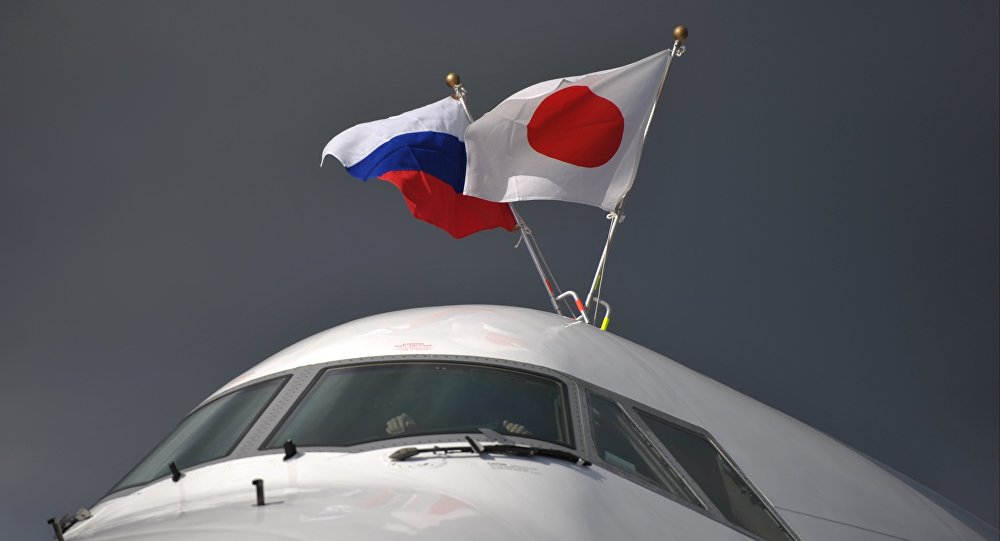
Mr. Abe said that talks on various issues would continue between the nations. Key among them is the status of the Kuril Islands (which the Japanese call “The Northern Territories’’), which the former Soviet Union seized from Japan at the end of World War II.
Indeed, a formal peace treaty between Moscow and Tokyo has yet to be signed, over seven decades after the end of the war, at least in part because of Japanese anger over the seizure of the Kurils.
See more









